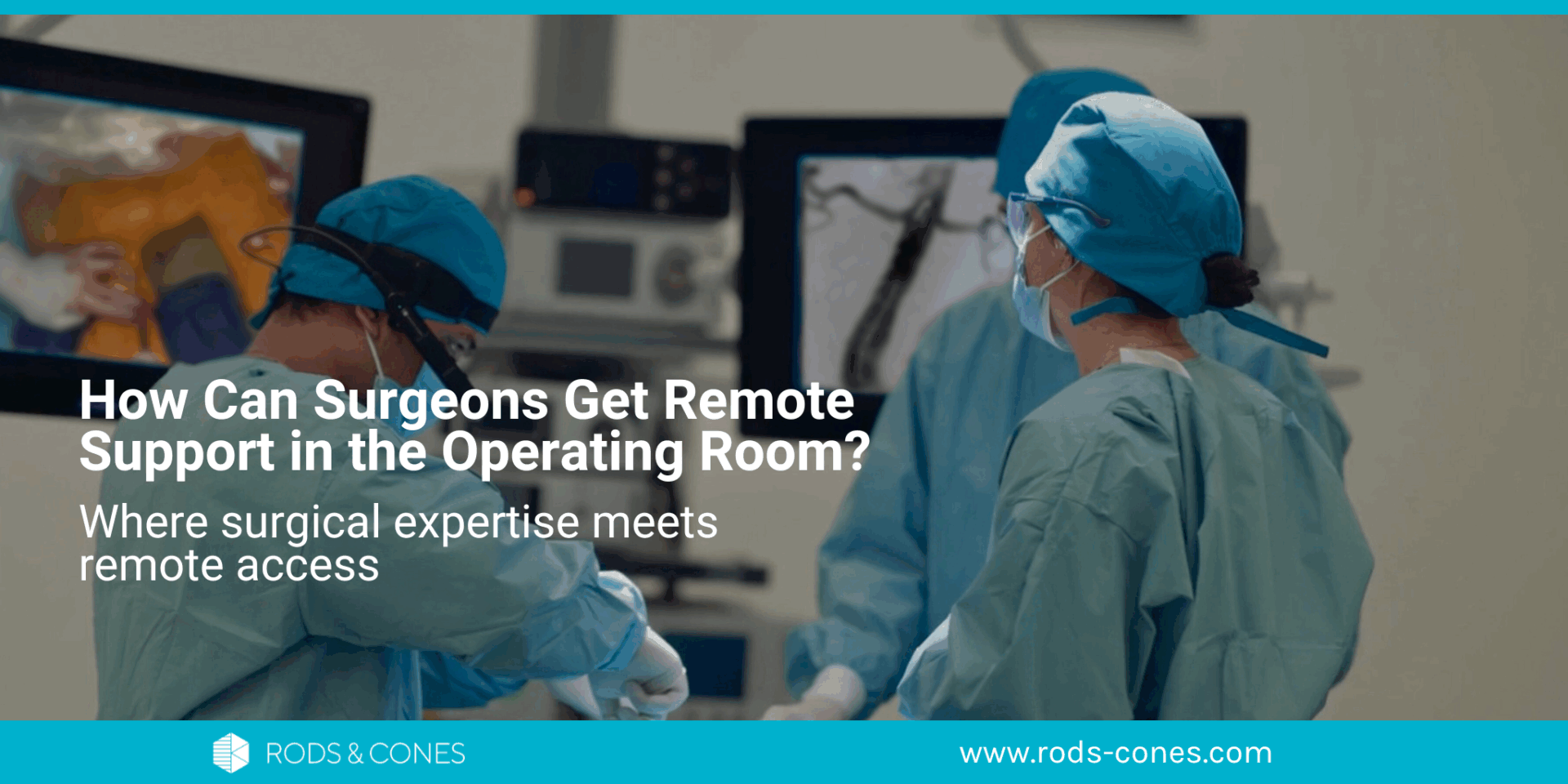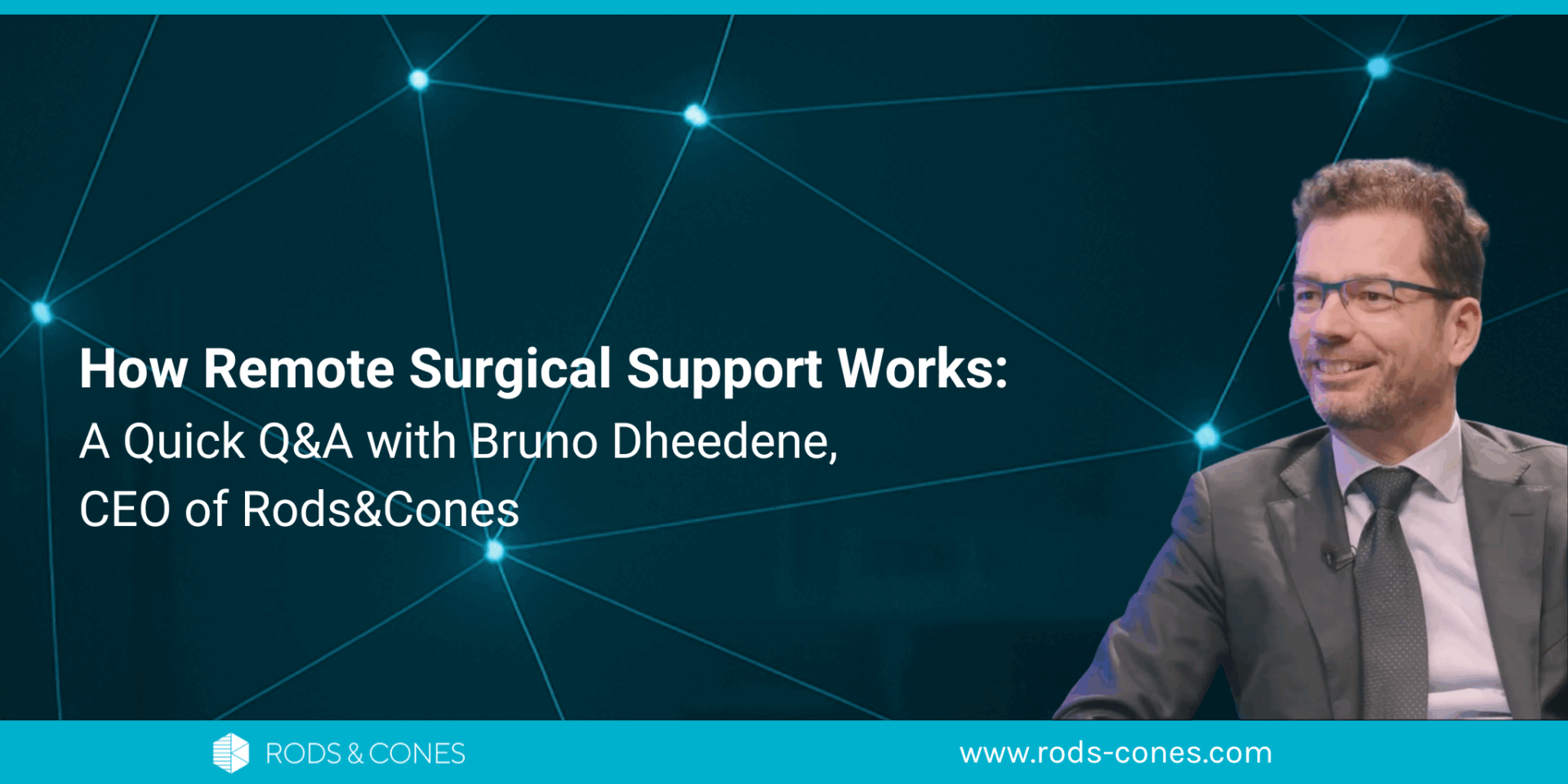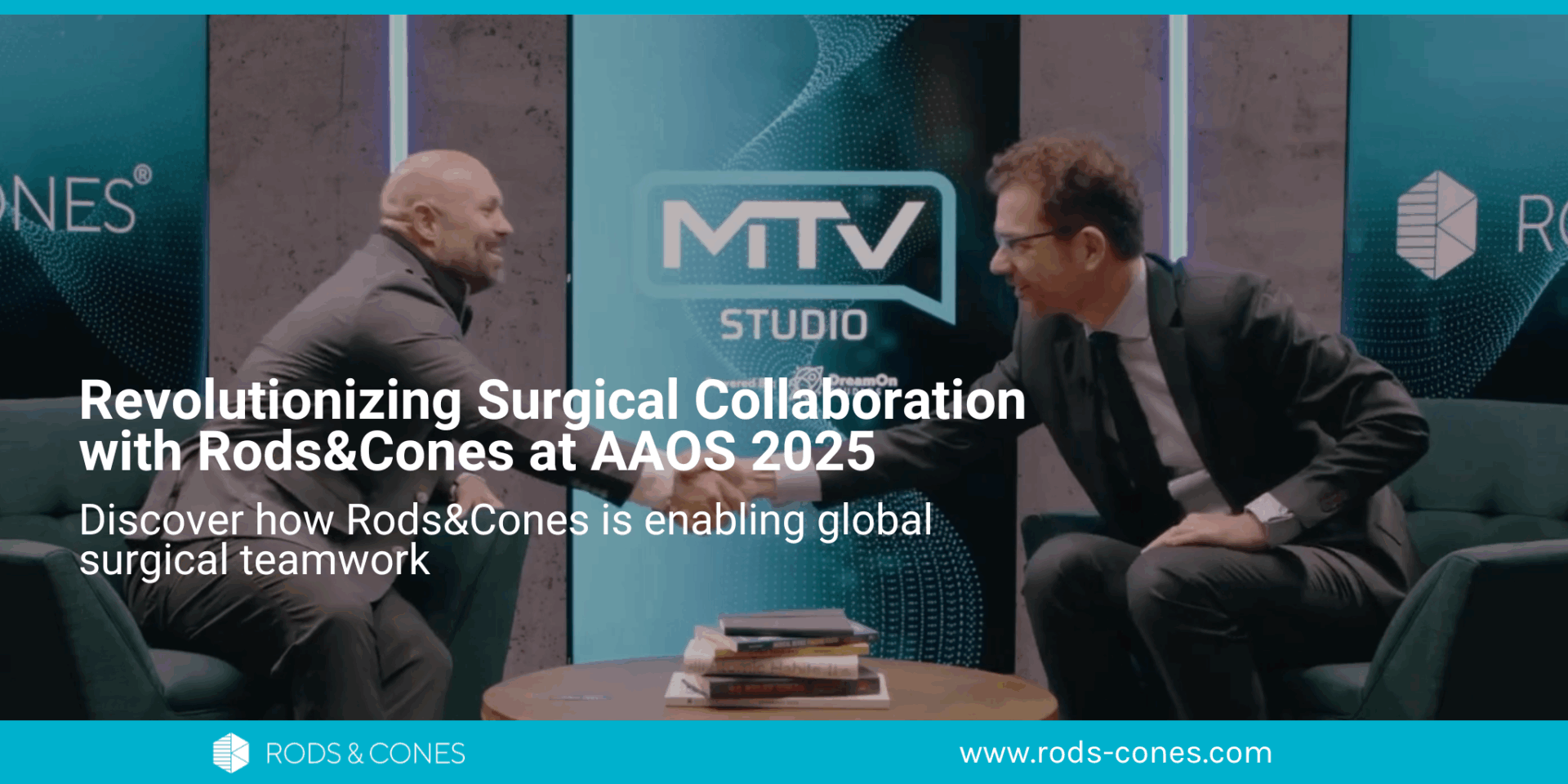With a pair of high-tech glasses and a remote communication platform, surgeons and other medical professionals can now seamlessly connect with experts and colleagues outside the operating room (OR). This is a game-changer. It means frontline surgical teams can bring expert advice into the OR, on-demand, when they need it most. And the technology is even being used to cut patient waiting times.
What are smart glasses for surgeons?
Smart glasses for surgeons enable an expert located anywhere in the world to provide remote assistance to the OR. The surgeon’s glasses are linked to the external expert through a secure remote communication platform accessed via a web browser.
A video feed from the high-resolution camera in the glasses gives the expert a surgeon’s-eye view of the procedure. Two-way communication enables them to talk with the medical professional as if they were in the room.

According to research by Vuzix, 25% of surgeons in the US are already integrating smart glasses into their surgical practices, with a further 31% considering it. These glasses are also being widely used for educational purposes. The same report found that 67% of US surgeons had received training via AR smart glasses.
Technology from Rod&Cones also enables medical professionals in the OR to connect multiple audiovisual sources – up to six with the Open and Minimally Invasive Surgery (MIS) kits – and securely share them with the remote expert. This includes X-rays, ultrasounds, heart-rate monitors, and more.
Why are these surgeon’s glasses being used?
Our technology enables MedTech experts, assisting surgeons, medical students, and other healthcare professionals to see and communicate in real-time with surgeons working in any OR. This type of technology has various applications, providing numerous benefits to both surgical teams and their patients. That’s why it’s gaining traction across the medical sector:
- Healthcare: Medical professionals use it to demonstrate procedures to peers or residents or attend live surgeries to provide highly-specialized guidance and support.
- Field Surgery: Our kits provide a compact solution to healthcare teams located in areas without the right expertise – such as in rural healthcare and conflict zones.
- MedTech: Medical device reps can provide technical support without travel or scrubbing in, seeing and hearing everything remotely via a member of the OR team.
As the technology and its potential applications evolve, it’s likely to become an essential piece of the surgeon’s tool kit – in a similar vein to surgical loupes. It’s clear that younger generations of surgeons are increasingly receptive to the use of smart glasses. In fact, 37% of surgeons aged 25-34 see AR as the future of surgical education, the Vuzix report found.

How do surgeon’s glasses cut patient waiting times?
These days, everyone is being asked to do more with fewer resources. The healthcare system is no exception. In fact, it’s a prime example. Countries such as the UK face a real challenge to cut patient waiting times and provide timely, life-prolonging surgeries.
In the US, a resounding 49% of surgeons surveyed by Vuzix believe that this technology can not only increase speed and accuracy but also reduce human errors – ultimately benefiting patient outcomes. 42% of plastic surgeons in the US are currently considering the technology. Right now, cardiovascular surgery is leading the way, with 47% of surgeons incorporating AR smart glasses.

Take an example from the UK. At Basildon University Hospital in Essex, smart glasses are being used by the cardiology department to reduce waiting times for heart procedures. It allows a single specialist to remotely support operations in multiple locations without having to travel.
The impact is that specialists free-up time to see more cases in one day, so that patients waiting times are reduced. BBC News reports that Basildon University Hospital has cut surgery waiting times by almost 50%.
To see Rods&Cones’ technology in action, watch this short video from BBC News:
Disclaimer: Rods&Cones is not responsible for external content.





